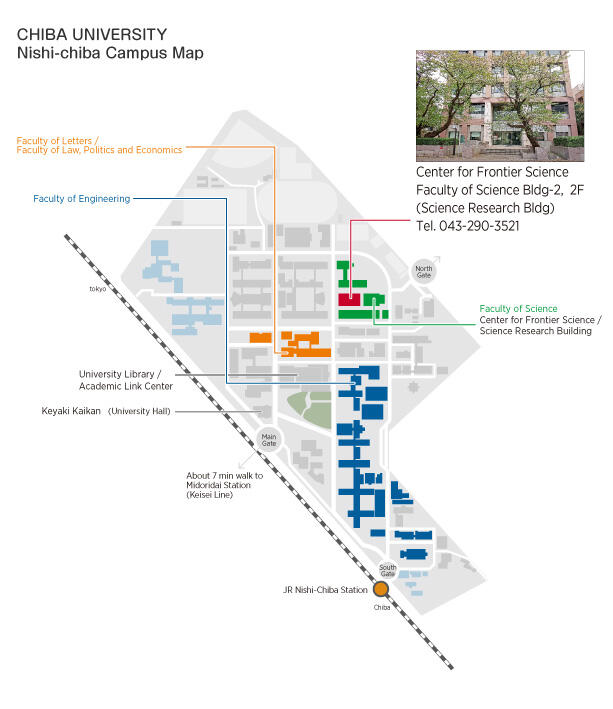Center for Frontier Science
The Center for Frontier Science (CFS) administers the Frontier Science Program (FSP), which is open to gifted students permitted to enter Chiba University before graduating from high school. The policy of CFS is to encourage talented students to become scientists in the natural sciences, especially physics, chemistry, biology, plant biology, engineering, informatics, and the human sciences. Since we believe some special measures are needed for this purpose, special seminars for the above seven fields are delivered to the CFS students to stimulate their interest. Besides these seminars, some liberal arts seminars are also arranged. CFS also has strong links with high school teachers, and exchanges opinions with them on education systems for young people. This is not only to seek better educational methods in the FSP, but also to prevent young people from losing their interest in science, which we think is a large problem in the Japanese educational system.
Frontier Science Program
The Frontier Science Program, in which gifted students get professional education in science as regular students before graduating from high school, is designed to foster highly creative young scientists and researchers venturing out into the world. We call for applicants in winter and spring. Successful candidates start their study in the 7 fields and 14 classes at Chiba University either in April or September. The curriculum is enriched by one month of English training in Canada. The small-group instruction, seminars, and the majority of alumni continued their studies at graduate schools at Chiba University or other universities. Some of them are teaching at universities or working as scientists and engineers in research institutes.





